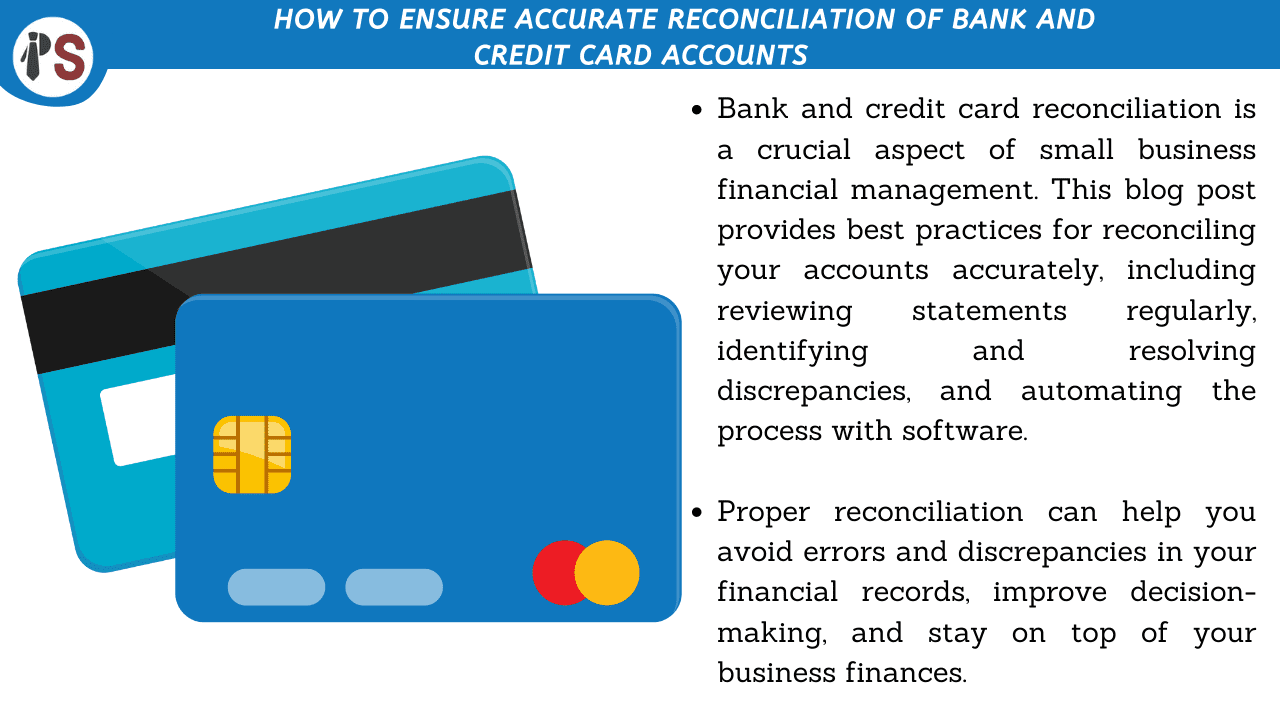
Bank and credit card reconciliation is a critical process in accounting and bookkeeping. Reconciliation ensures that the transactions recorded in your accounting system match the transactions in your bank and credit card statements. By doing so, you can identify discrepancies, detect errors, and prevent fraud. In this blog, we will discuss the best practices for bank and credit card reconciliation.
Keep Records Organized: To ensure a smooth reconciliation process, keep your bank and credit card statements and receipts organized. Store these documents in a secure location, and make sure they are easily accessible when you need them.
Reconcile Accounts Regularly: Reconcile your bank and credit card accounts regularly, preferably on a monthly basis. This will help you identify errors or discrepancies early and take corrective action.
Match Transactions: Match the transactions in your bank and credit card statements to the transactions recorded in your accounting system. Ensure that the transaction amounts and dates match and that they are assigned to the correct accounts.
Verify Outstanding Checks and Deposits: Make sure you account for any outstanding checks or deposits in your bank and credit card accounts. Outstanding checks are checks that have been issued but not yet cashed. Outstanding deposits are payments that have been received but not yet deposited.
Record Bank and Credit Card Fees: Don't forget to record any bank and credit card fees in your accounting system. These fees can include ATM fees, overdraft fees, monthly service fees, and interest charges.
Investigate Discrepancies: If you find any discrepancies between your accounting system and your bank or credit card statements, investigate them immediately. This will help you identify and correct any errors or fraudulent activities.
Keep Detailed Records: Keep detailed records of your bank and credit card reconciliation process. This will help you track your progress, identify recurring issues, and ensure compliance with accounting regulations.
In conclusion, bank and credit card reconciliation is an essential process for small businesses. It ensures that your financial records are accurate and up-to-date, and it helps you identify errors or discrepancies early. By following these best practices, you can streamline the reconciliation process and maintain financial transparency
At Professional Saathi, we offer a range of business consultancy services that help businesses improve their performance, achieve growth, and overcome challenges.
Copyright 2026 © Created By KTPG PROFESSIONAL SAATHI CORPORATE CONSULTANT PRIVATE LIMITED, All Rights Reserved.
Leave Your Comment